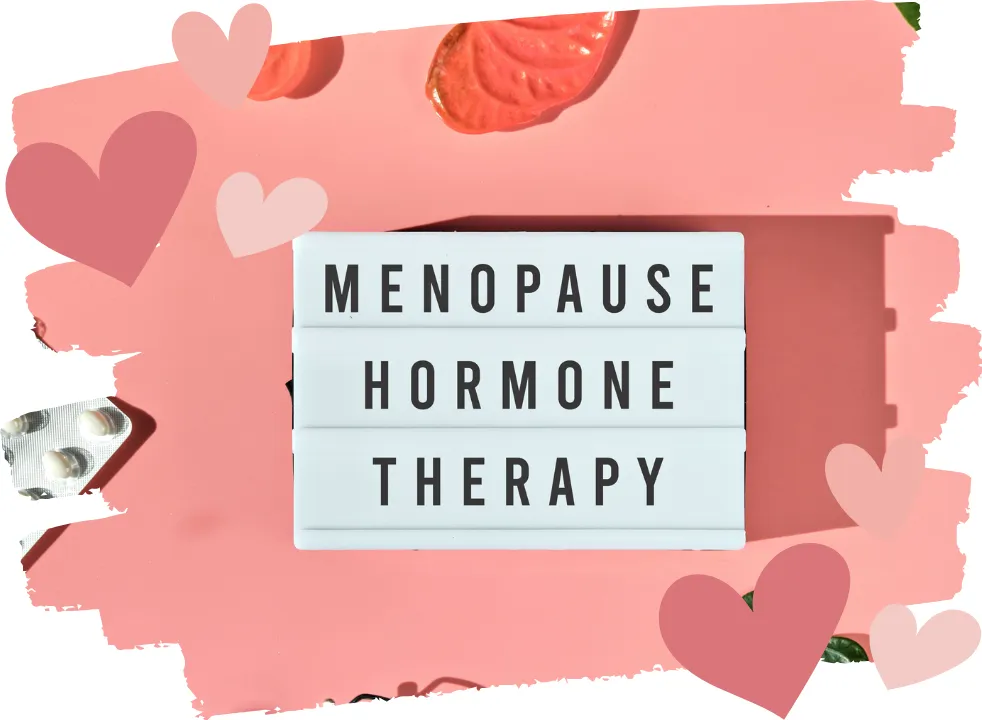The Blog
Perimenopause 101
So… your body’s doing weird things, your moods are all over the map, and Google is now your late-night bestie? You’re in the right place. This is your crash course in perimenopause—the messy, magical, hormone-fueled transition every woman deserves to understand. No medical jargon. No shame. Just real talk, expert insights, and tips to help you feel a little more human again.

Bioidentical Hormones & Perimenopause: Your Midlife Reboot Without the Guesswork
✨ Perimenopause Power Moves: 5 Simple Nutrition Shifts to Help You Feel Like Yourself Again ✨
Grab your free guide today!
👉 Download Now!
Bioidentical Hormones & Perimenopause: Your Midlife Reboot Without the Guesswork
"There is no force equal to a woman determined to rise." - W.E.B. Du Bois
🚪Welcome to the Wild World of Perimenopause
Perimenopause isn’t just a phase—it’s a full-blown identity shift. One minute you’re cruising along, the next you’re wondering why your heart is racing, your brain’s in a fog, and you just cried over a laundry commercial.
And in the middle of all that chaos? You’re trying to figure out how to feel like yourself again.
That’s when you start hearing about bioidentical hormone therapy—something that sounds like it could be magical or maybe... just another rabbit hole.
So let’s clear the confusion. What are bioidenticals, who are they for, and how do you know if they’re the missing piece in your perimenopause puzzle?
🌙 My Hormone Therapy Story (A Love Letter to Progesterone)
A few years ago, I was deep in the throes of night sweats. I’m talking waking up drenched, peeling off pajamas at 3 AM, and starting each day like I ran a half-marathon in my sleep. I tried all the things—cooling pillows, fancy PJs, magnesium, herbal teas—you name it.
What finally helped? Bioidentical progesterone. Within weeks, the night sweats vanished. I slept. I smiled. I felt human again.
Then came the creeping fatigue, the missing libido, the “where did my motivation go?” vibes. My testosterone had tanked. So I added in a compounded testosterone cream, and slowly, the spark came back.
Hormone therapy didn’t fix everything, but it gave me a solid foundation to start feeling like me again.
🧬 What Even Are Bioidenticals?
Here’s the short version: bioidentical hormones are made to match the exact structure of the hormones your body naturally produces. They’re typically plant-based (derived from things like soy or yams), and they can be personalized—so you get what your body actually needs.
They’re not one-size-fits-all. They’re more like: “Let’s test your levels, see what’s off, and build something just for you.”
You can get bioidenticals in different forms: creams, patches, pills, pellets. And while some versions are FDA-approved, others are compounded by special pharmacies. (More on that below.)
Not every doctor is on board with this approach—and some won’t even test your hormone levels. If that’s your situation, it might be time to find someone who actually gets perimenopause and treats it like the real, life-altering experience it is.
🔔 When the Yoga and Smoothies Aren’t Enough
Let’s be real: we’ve tried it all. Clean eating. Adaptogens. More sleep. Less wine. Daily affirmations taped to our bathroom mirrors.
And sometimes… it’s still not enough.
These symptoms? They're not just annoying. They're messages from your body.
Common hormone-related symptoms:
Hot flashes and night sweats
Vaginal dryness or pain
Anxiety, mood swings, or irritability
Brain fog and forgetfulness
Fatigue that makes 2 PM feel like midnight
A disappearing libido (and confidence to match)
Bioidentical hormone therapy isn’t the answer for everyone, but if you’ve been doing “all the right things” and still feel off, it’s worth exploring.
⚖️Bioidenticals vs. Synthetic Hormones: What’s the Difference?
Think of it like shoes.
Bioidentical hormones are like having your shoes custom-made to fit your exact foot. They're crafted to match your body’s natural hormones, usually from plant sources like yams or soy. And because they’re tailored just for you—dose, delivery, everything—they often feel better. Less trial and error. Fewer weird side effects.
Synthetic hormones? Those are more like grabbing a pair off the shelf and hoping they fit. They get the job done, but they’re made with slightly different ingredients and come in one-size-fits-most dosages. Some women do fine with them. Others feel off.
Bottom line: bioidenticals offer more flexibility and a closer match to what your body’s used to. But what matters most is finding a practitioner who helps you figure out what works for you, not what works for “everyone else.”
⚠️ Are Bioidenticals Safe?
Short answer: they can be. But like any medical treatment, it depends on the person, the provider, and the plan.
💛 Potential benefits:
Eases hot flashes, night sweats, and vaginal dryness
Supports mood and better sleep
May improve memory and mental clarity
Helps protect bone health
❗Potential risks:
Not all compounded versions are FDA-approved
May not be suitable if you have a history of breast cancer or blood clots
Needs regular monitoring to keep things in check
And FYI—while many people still call it HRT, most up-to-date resources now use HT (Hormone Therapy) to cover both traditional and bioidentical options.
Want to learn how HT may also help protect your heart? Check out Why Cholesterol Spikes in Perimenopause: What Every Woman Over 40 Needs to Know
🧪 Not All Pharmacies Are Created Equal
Here’s a secret most people don’t tell you: the quality of your bioidenticals matters. A lot.
Because compounded hormones aren’t regulated like typical meds, you want to work with a reputable compounding pharmacy.
Things to ask your provider:
Where do they get the hormones from?
How is each batch tested?
Do they monitor for potency and purity?
My hormone doctor was very specific about where to go—and I’m so glad I listened.
🔁 Bioidenticals Are Not Set-It-and-Forget-It
Here’s the thing: your hormone needs will change. That’s normal. The beauty of bioidenticals is that you can adjust as you go.
✅ Regular testing
✅ Symptom tracking
✅ Communication with your provider
✅ A little patience
It’s not instant magic—but it can be life-changing.
"The most courageous act is still to think for yourself. Aloud." – Coco Chanel
🧠 So… Should You Try Bioidentical Hormone Therapy?
“The most courageous act is still to think for yourself. Aloud.” – Coco Chanel
If you’re nodding your head through this blog, wondering if bioidenticals might be the thing that finally helps you feel like yourself again—trust that instinct.
Do your research. Talk to friends. Get second opinions. And most importantly, find a practitioner who listens.
You don’t have to keep toughing it out. You’re allowed to ask for more support.
💡 Your Next Step: You’re in Charge Here
Whether or not bioidentical hormone therapy is right for you, remember: you’re in control. This is your body, your transition, your journey.
And if alcohol is also part of the picture and you’re curious about its impact on your hormones, take a look at Alcohol, Anxiety, and Perimenopause: How to Break Free and Feel Better. It’s all connected—and you deserve to feel supported from every angle.
Let this be your reminder: You’re not crazy. You’re not alone. And you have options.
Hormonally Yours,
Kimberlee Erin
Just a heads-up: I’m a Certified Menopause Coaching Specialist and Holistic Nutritionist, and while I love sharing what’s worked for me and my clients, this blog is for informational purposes only. It’s not a substitute for medical advice. Always check in with your healthcare provider before starting new supplements, hormones, or treatments—especially since every woman’s perimenopause journey is different. You deserve personalized care that truly fits you.
Free Download
Embracing Perimenopause: Tips and Tools for a Smooth Transition
Feeling overwhelmed by perimenopause? You’re not alone. Get my free guide, "Embracing Perimenopause: Tips and Tools for a Smooth Transition," and gain the confidence to manage your symptoms effectively.
Packed with practical advice and expert tips, this guide will help you balance your hormones, reduce stress, and improve your well-being.
Download your copy today and start your journey towards a smoother, more empowered transition.

